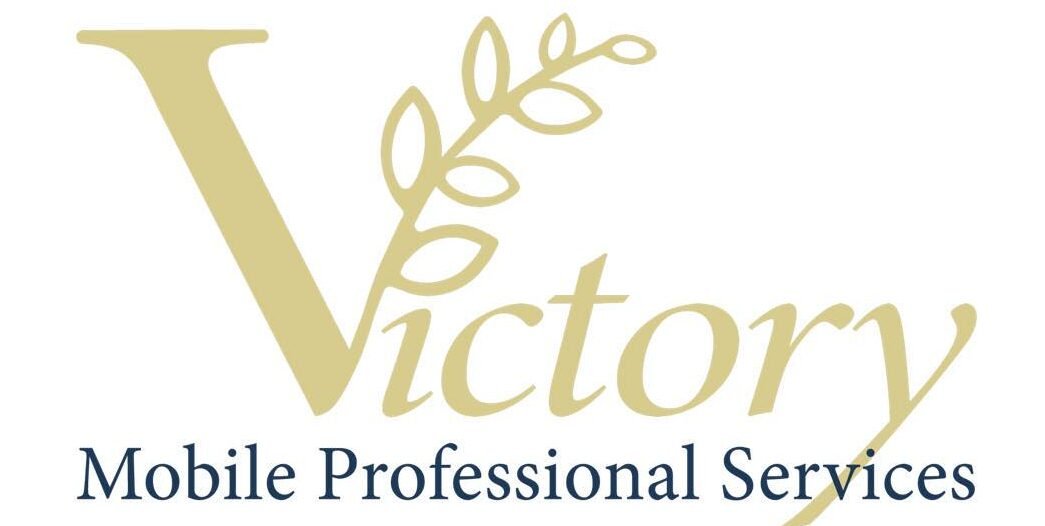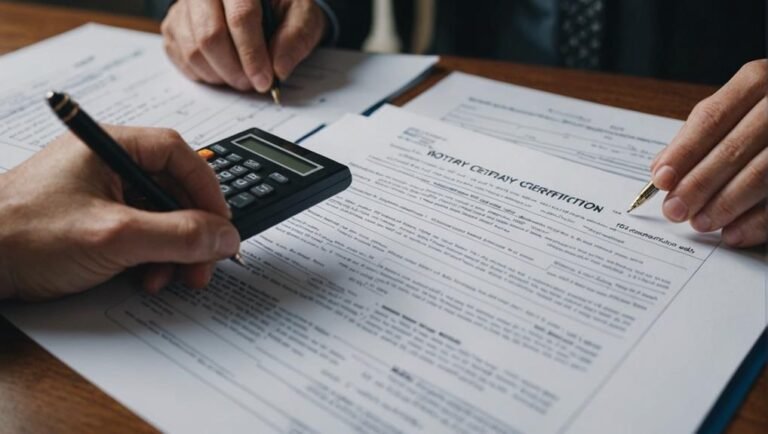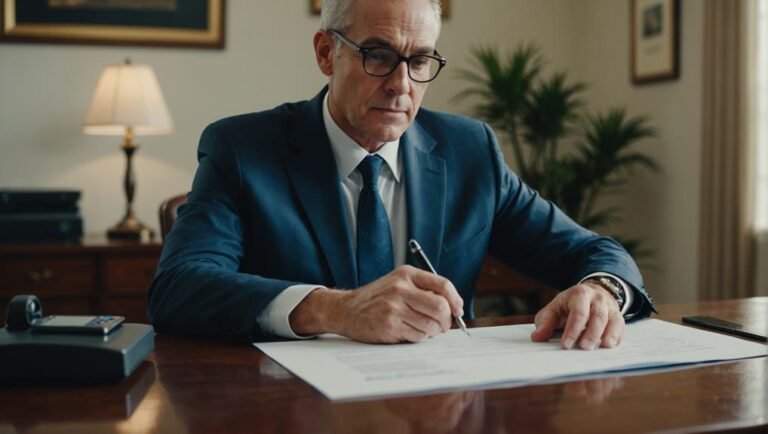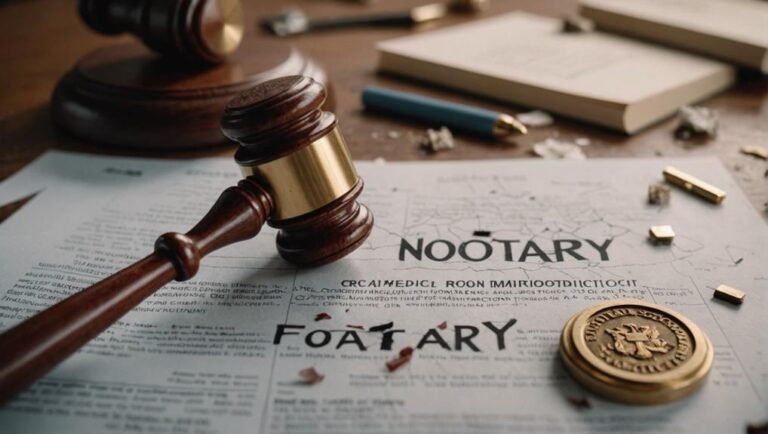In Florida, a notary cannot notarize their own signature. This rule exists to uphold ethical standards and impartiality necessary for trust in notarial acts. Self-notarization undermines professionalism and credibility, risking conflicts of interest. Adhering to this prohibition is essential for maintaining integrity and transparency in legal documentation. Remember, abiding by this regulation is vital to preserving the public's confidence in notarial services and the legal system.
Key Takeaways
- Florida law prohibits notaries from notarizing their own signature to uphold ethics.
- Self-notarization undermines impartiality and neutrality requirements.
- Violating the prohibition risks conflicts of interest and breaches of ethics.
- Upholding notarial integrity mandates strict adherence to ethical standards.
- Impartiality is essential in maintaining credibility and professionalism in notarial acts.
Prohibition on Self-Notarization
Florida law unequivocally prohibits notaries from notarizing their own signature. As a Florida notary, it's crucial to adhere to this legal mandate to maintain the integrity and credibility of notarial acts. Self-notarization is strictly forbidden in Florida, as it goes against the fundamental principles of notary ethics. By notarizing their own signature, a notary would violate the impartiality and neutrality requirements essential for the proper execution of notarial duties.
The prohibition on self-notarization aims to uphold the highest standards of professionalism and trust within the notary public community in Florida. Notaries must always guarantee that their actions are unbiased and impartial, which includes refraining from notarizing their personal documents. This prohibition serves to safeguard the public interest and prevent any potential conflicts of interest that may arise from notarizing one's own signature.
Impartiality and Neutrality Requirement
Maintaining impartiality and neutrality is a fundamental necessity for notaries when performing notarial acts. Upholding these principles is essential to guarantee the integrity and validity of the documents being notarized.
Notaries in Florida are prohibited from notarizing their own signatures to prevent any conflicts of interest and uphold impartiality in their duties. It's essential for notaries to avoid notarizing any documents in which they've a personal interest, as this could compromise their neutrality and raise ethical concerns.
Violating the rule against notarizing one's own signature represents a clear ethical breach that undermines the trust and credibility of the notarial process. By adhering to the standards of impartiality and neutrality, notaries uphold the professionalism and integrity expected in their role, safeguarding the reliability of notarized documents and preserving public confidence in the notarial system.
Violation of Notary Ethics
Notarizing one's own signature as a Florida notary is a breach of ethical standards and violates the core principles of impartiality and neutrality in the notarial process. Florida notaries are bound by strict ethical guidelines to guarantee the integrity of notarial acts and maintain public trust.
Self-notarization undermines these principles and can have serious consequences for both the notary and the individuals involved. Here are three key reasons why self-notarization is considered a violation of notary ethics:
- Impartiality: Notaries are expected to remain impartial and unbiased when performing notarial acts. Notarizing one's own signature compromises this fundamental principle.
- Conflict of Interest: Self-notarization creates a clear conflict of interest as the notary's personal interest in the document may cloud their judgment and impartiality.
- Professional Integrity: Upholding the highest standards of professional integrity is essential for notaries to fulfill their duties effectively. Self-notarization detracts from the credibility and trustworthiness of the notarial process.
Upholding Notarial Integrity
To uphold notarial integrity, adherence to strict ethical guidelines is paramount for notaries in Florida. As a notary public, it's essential to understand that the law prohibits you from notarizing your own signature. This prohibition serves to maintain impartiality and prevent conflicts of interest. Upholding the principles of integrity and neutrality is fundamental to the role of a notary public. Any attempt to notarize a document in which you have a personal interest would constitute a breach of ethical standards and could lead to legal consequences.
Florida law mandates that notaries must operate with the highest level of integrity and professionalism. By refraining from notarizing documents for yourself or anyone in which you have a personal interest, you demonstrate a commitment to upholding the integrity of notarial acts.
Integrity of Notarial Acts
Adhering to the principle of impartiality is fundamental in preserving the integrity of notarial acts in Florida. As a notary public, maintaining a neutral stance is vital to upholding the validity and trustworthiness of the documents you notarize.
To secure the integrity of notarial acts, consider the following:
- Information Accuracy: It's essential to accurately record all relevant information in the notarial certificate to prevent any misrepresentation of facts.
- Person Whose Signature is Notarized: Always verify the identity of the individual signing the document to confirm their willingness and understanding of the contents.
- Financial Interest Avoidance: Refrain from notarizing any document in which you have a financial interest to prevent conflicts of interest that could compromise the impartiality of the notarization process.
Principles of Notary Impartiality
Preserving the integrity of notarial acts in Florida hinges on the foundational principle of maintaining impartiality as a notary public. Impartiality is the cornerstone of notary ethics, ensuring that notaries remain neutral and unbiased in their duties. It's imperative for notaries to avoid conflicts of interest, as any personal stake in a transaction can compromise the integrity of the notarial act.
By upholding impartiality, notaries contribute to the credibility and trustworthiness of notarized documents.
Notaries must adhere strictly to the principle of impartiality to fulfill their duty of certifying the authenticity of signatures and the validity of documents. Any deviation from this principle undermines the fundamental purpose of notarization, which is to provide an independent verification of identities and signatures.
Upholding impartiality safeguards the sanctity of the notarial process, reinforcing public confidence in the reliability of notarized documents.
Importance of Notarization Validity
Maintaining the validity of notarized documents is paramount to upholding the integrity of the notarial process in Florida. Ensuring that each notarization adheres to ethical standards and Florida law is essential for the credibility and legality of the documents involved.
When it comes to the importance of notarization validity, consider the following:
- Impartiality: Notaries must remain impartial and unbiased when performing notarizations to guarantee the fairness and authenticity of the process.
- Ethical Standards: Upholding ethical standards means not engaging in any actions that could compromise the integrity of the notarial process, including notarizing one's own signature.
- Validity under Florida Law: Florida law strictly prohibits notaries from notarizing their own signatures to uphold the legal validity and reliability of notarized documents.
Frequently Asked Questions
What Are the New Florida Notary Rules?
When considering the new Florida notary rules, it's important to understand the responsibilities, qualifications, training requirements, and stamp regulations. Upholding these standards guarantees professionalism and trust in notarial acts, safeguarding the integrity of the process.
Can I Notarize My Brother's Signature in Florida?
You cannot notarize your brother's signature in Florida due to legal implications, conflict of interest, and ethical considerations. Notaries must uphold impartiality and avoid notarizing documents for family members to fulfill their responsibilities with integrity.
Does a Notary Have to Witness a Signature in Florida?
You must witness signatures as part of your notarial responsibilities in Florida. Upholding notary ethics is essential to avoid legal implications. Failing to witness signatures can lead to severe consequences, impacting the integrity of notarization.
Can a Florida Notary Charge per Signature?
You can charge notary fees per signature in Florida. It's important to guarantee proper signature verification to uphold legal requirements. Remember the legal implications and ethical considerations involved in this process to maintain professionalism and integrity.
Conclusion
So, to sum up, it's evident that a Florida notary can't notarize their own signature.
Remember, the integrity and impartiality of notarial acts must always be maintained to guarantee the validity of important documents.
Let's leave the self-notarization to the world of fiction and fantasy, and trust in the professionalism and ethics of qualified notaries.
Remember, a notary's signature should always be verified by another impartial party for the sake of legal validity.






